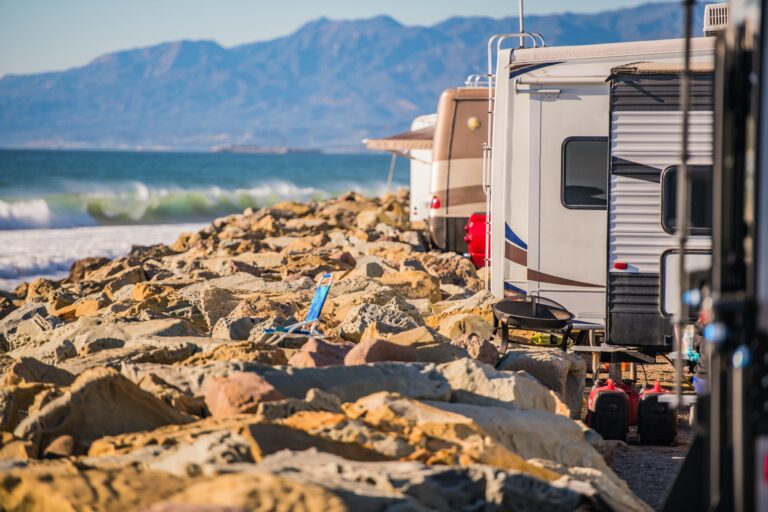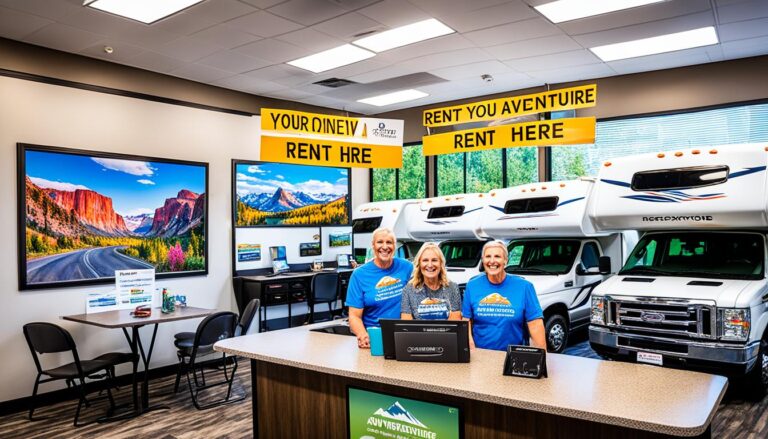When it comes to ensuring your RV is protected, one of the most significant considerations is selecting the right insurance policy. Whether you’re a full-time RVer or an occasional adventurer, you want to make sure you’re covered in case of an accident, theft, or other unforeseen events.
However, with the cost of living slowly increasing, it’s essential to keep your RV insurance rates in mind. Finding affordable rates that fit within your budget can seem like a daunting task, but it’s worth it to protect your RV investment and your peace of mind.
Understanding RV Insurance Rates
Before purchasing an RV insurance policy, it’s important to understand how RV insurance rates are calculated. Rates may vary based on several factors, including the type of RV, how often it’s used, and its location.
Getting RV insurance rate quotes and using a rate calculator can give you an idea of what your premium may be. However, keep in mind that the final rate may differ based on additional factors that may impact your policy.
Some of the factors that can affect your RV insurance rates include:
| Factor | Description |
|---|---|
| Type of RV | The make and model of your RV can impact your rate. Class A RVs typically have higher rates than Class B or Class C RVs. |
| Usage | If you use your RV full-time, you may have a higher rate than if you only use it for occasional trips. |
| Location | RV insurance rates may vary based on where you store your RV and where you frequently take it. |
By understanding these factors, you can be better prepared when shopping for RV insurance. Comparing rates from multiple providers can also help you find the best coverage at the best price.
Factors Affecting RV Insurance Rates
While the price of RV insurance can vary depending on the provider you choose, a number of additional factors can also impact the overall cost of your policy. Here are some key considerations to keep in mind when shopping for RV insurance:
| Factors | How They Affect RV Insurance Rates |
|---|---|
| RV Type | The type of RV you own can impact your insurance rates, with larger or more expensive RVs typically costing more to insure than smaller or less valuable models. |
| Usage | RV insurance rates may be higher if you use your RV as a primary residence or for business purposes, as these scenarios come with added risks for insurers. |
| Location | Where you park and use your RV can also impact the cost of insurance, as factors like local theft rates and weather patterns can affect the likelihood of a claim. |
| Driving Record | Your driving history will also impact your insurance rates, with a clean record generally resulting in lower premiums. |
| Coverage Limits | The amount of coverage you choose for your RV can also impact the cost of your policy, with higher limits resulting in higher premiums. |
If you’re looking to save money on RV insurance, taking steps to mitigate some of these factors can help. For example, choosing a smaller or less expensive RV, using it for personal rather than business use, and parking it in a safe location can all help lower your rates. You can also consider choosing higher deductibles or shopping around to compare RV insurance rates from multiple providers.
Tips for Lowering RV Insurance Costs
RV insurance can be costly, but there are ways to lower your premiums and save money. Here are some tips for getting the lowest RV insurance rates:
Bundling Your Policies
One way to save money on RV insurance is to bundle your policies with the same provider. If you also have car, homeowners, or other insurance policies, ask your provider if they offer a discount for combining your coverage.
Choosing a Higher Deductible
Another way to reduce your RV insurance costs is to choose a higher deductible. A deductible is the amount you pay out of pocket before your insurance coverage kicks in. By raising your deductible, you can lower your monthly payments. Just be sure to choose a deductible that you can afford to pay if you need to file a claim.
Taking Advantage of Discounts
Many RV insurance providers offer discounts for things like safety features, membership in certain organizations, and safe driving habits. Be sure to ask your provider about any discounts that may apply to you.
Comparing RV Insurance Rates
Finally, it’s important to shop around and compare RV insurance rates from multiple providers. Don’t just settle for the first quote you receive. Take the time to research different providers, read reviews, and compare coverage options and rates. By doing so, you can find the best RV insurance rates that fit your needs and budget.
By following these tips, you can lower your RV insurance costs and enjoy your adventures on the road with peace of mind.
Tailored Coverage for Your RV
When it comes to protecting your RV, having the right coverage is crucial. Whether you have a motorhome, travel trailer, or fifth-wheel, having tailored coverage can give you peace of mind while on the road.
One of the first steps in getting the right coverage is to get RV insurance rate quotes from multiple providers. This can help you compare coverage options and prices to find the best fit for your needs and budget. It’s important to keep in mind that the lowest RV insurance rates may not always provide the best coverage, so it’s essential to review the details of each policy.
When choosing coverage, consider the specific features and equipment of your RV. For example, if you have custom-built additions or expensive electronics, you may want to consider additional optional coverage such as accessory coverage or sound system coverage.
Liability coverage is also important when protecting your RV. This coverage can help pay for damages or injuries caused by you or a covered driver while operating the RV. Collision coverage can help repair or replace your RV if it is damaged in a collision with another vehicle or object. Comprehensive coverage can protect your RV from non-collision incidents such as theft, vandalism, or natural disasters.
Working with a qualified insurance provider can help ensure that you get the right tailored coverage for your RV. They can help you understand the coverage options, limits, and deductibles, and tailor a policy to your specific needs.
Choosing the Right RV Insurance Provider
Choosing the right RV insurance provider can make all the difference in protecting your investment while allowing you to enjoy your travels worry-free. Here are some tips to help you make the best decision:
- Research the provider’s reputation: Look for customer reviews, ratings, and testimonials to get a sense of how reliable and trustworthy the provider is.
- Check the provider’s coverage options: Make sure the provider can offer tailored coverage that fits your specific needs and budget.
- Consider the provider’s customer service: Look for a provider that offers responsive and helpful customer service, with easy access to agents and plenty of support.
- Compare RV insurance rates: Don’t settle for the first provider you come across. Shop around, compare rates from multiple providers, and negotiate for the best RV insurance rates and discounts available.
By considering these factors, you can find the right RV insurance provider that meets your needs and helps keep your adventures on the road secure and enjoyable.
FAQ: RV Insurance Rates
When it comes to RV insurance rates, there are many questions that come to mind. We’ve compiled some of the most common FAQs to help you understand what to expect and how to prepare for your RV insurance costs.
How often do RV insurance rates change?
Rates can vary from provider to provider and can be affected by a number of factors, such as state regulations and the condition of your RV. It’s important to review your policy every year to make sure you’re getting the best coverage at the best price.
How do I file a claim?
If you need to file a claim, contact your RV insurance provider as soon as possible. They will guide you through the process and help you get the coverage you need. It’s important to have all your policy information on hand when filing a claim.
What if I can’t afford RV insurance?
It’s important to budget for RV insurance costs as part of your overall travel expenses. If you’re struggling to afford coverage, talk to your provider about discounts and ways to lower your premium. You can also consider increasing your deductible to lower your monthly costs.
What should I do if I have unexpected expenses?
If you’re facing unexpected expenses related to your RV, such as repairs or medical bills, contact your insurance provider as soon as possible to discuss your options. They may be able to help you find additional coverage or work out a payment plan.
Conclusion
Understanding RV insurance rates and how they work is an important part of protecting yourself and your investment. By reviewing your policy regularly, comparing rates from multiple providers, and taking advantage of discounts and other cost-saving measures, you can ensure that you’re getting the best coverage at the best price. If you have any additional questions about RV insurance rates, don’t hesitate to contact your provider for more information.






